How I got to OpenAI
In May 2022, I started working at OpenAI as a resident on RL team, and eventually I got hired as full-time. As of today, I’m still at OpenAI, and I’m working on some ChatGPT related stuff and try to make progress on scalable alignment. I want to make a brief write-up of how this happened, because sometimes people ask about it and it might be helpful to other people in a similar situation.
TL;DR, this is the last couple steps:
- Repeat a couple of times:
- Make a list of stuff that’s relevant to ML I don’t yet grok.
- Find resources to grok it. Some examples:
- I consumed all the TensorFlow tutorials that don’t go to too niche topics (though today I’d do PyTorch). And of course made tons of Anki cards. Contact me if you want some of them.
- Deep Learning specialization on Coursera
- DeepLearning.AI TensorFlow Developer Professional Certificate on Coursera
- Reinforcement Learning Specialization on Coursera (from Martha and Adam White of University of Alberta)
- For RL, I did a course on Coursera
- Learn all I can from those resources, collect stuff I don’t yet understand, find references (e.g., papers I wanna read sometime etc.).
- Read up on recent papers.
- Read Spinning Up in Deep RL and follow up on the references.
- Implement some basic RL and ML experiments - e.g., lunar lander, half-cheetah.
- Take part in AI Safety Camp.
- Go to Zurich AI alignment meetups.
- Take part in an AGI Safety Fundamentals course.
- Mail the author of one paper I read about some typos/errors I found in the paper.
- When I feel ready-ish, keep on lookout for roles:
- Eventually, via reference from the author, apply to OpenAI residency, take the interviews, be super nervous, get hired :)
My longer relevant history follows.
My history
Before university
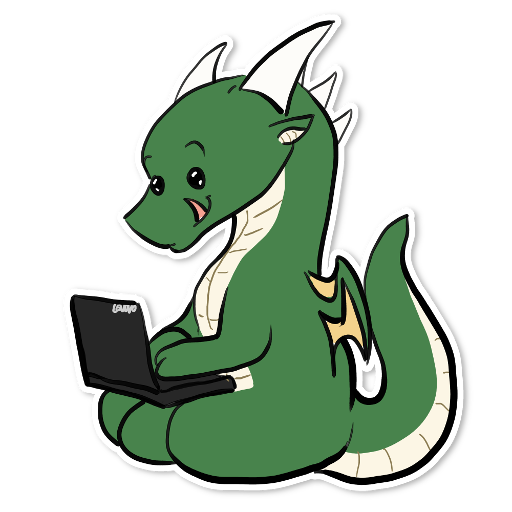
I’ve always been good with math and computers. (I started out as a more general hacker, including electronics etc., but eventually specialized.)
I did some competitive programming, high school programming seminars, olympiads etc. I got to district level rounds, and my top achievements were being ~#20-30 in competitive “algorithmic programming” (which is part of math olympiad in Czech Republic), and being #1 in competitive “practical programming” (which is more “write a program for task X” rather than “solve this theoretical problem”.
Bachelor’s
I took a wide approach to consume all the knowledge at uni. Since high school I’ve been freelancing, writing up small programs/websites. I leveraged that into a series of internships - first Represent.com in Prague (via Juraj Masar, who was in roughly the same uni year), then half a year for Google in Paris, then Dropbox.
When in USA on the Dropbox internship, I got an offer from Cruise and Coinbase via Triplebyte. I also did full-time interviews with Google and got an offer.
It turned out I was not mentally/spiritually ready for making the move to USA. I continued on with a master’s, keeping the Google offer in my back pocket.
Master’s
It was easy to do all the required courses but I ended up getting stuck on the last master’s requirement - the thesis. I tried to work on knowledge base completion with Pasky as my supervisor (who ended up (co-?)founding Rossum where he’s currently CTO). This was roughly at the time when the seminal Transformers paper Attention is All You Need, maybe +/- half a year or so.
I got involved in the rationality community in Prague and the EA community that eventually sprouted out of it. I co-founded the Czech EA association.
I wanted to do an open-source re-implementation of Google’s Knowledge Vault. It’s basically where you take Google’s Knowledge Graph, you mix in a bunch of unstructured data like Wikipedia or such, and based on that and some neural networks trained on the graph, you make a bigger graph, where you suggest “I think there’s relation R between entities X and Y, with probability P=0.97”.
Coming from Google, I assumed this would be pretty easy - you’d plug in standard building blocks for MapReduce-type pipelines, and out would come a model. I was trying to immediately jump to a larger scale project - completing the DBpedia knowledge graph with Wikipedia text.
Things turned out way harder than I expected. I tried to use Bazel to build Hadoop stuff to chew up Wikipedia articles, and HBase (Hadoop’s BigTable basically) to store Wikipedia articles. I ran into tons of stupid problems - like “oops, library X which I need and library Y which I need depend on versions of library Z which are incompatible, so you gotta split these 2 functions into separate binaries”. Or “oops maximum runtime on this cluster is 24 hours lol”. The iteration time was horrible.
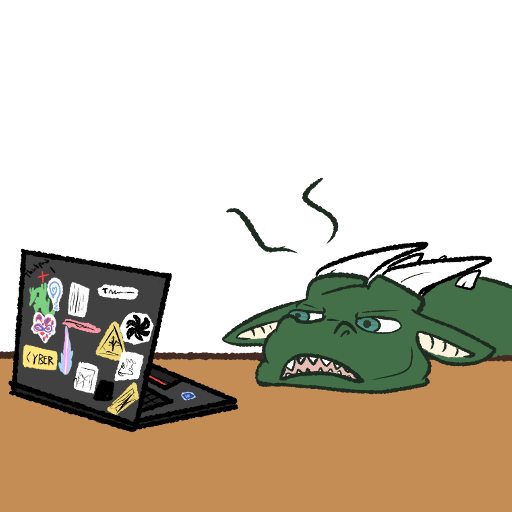
It doesn’t have a name but I think “computers were a mistake” would fit.
Today I’d probably try to approach this with less hubris, and try to start from smaller pieces, so that I’d have a fast iteration turn-out. And also, I’d just … drop all the manual NLP and throw a Transformer at the problem. But oh well, you live and learn.
I was working in the same office as a group of CUNI folks who ended up winning an Amazon tournament for writing a chit-chat agent, but I wasn’t working in their ecosystem - the knowledge base completion I was doing was basically playing on my own little field.
On top of that, I experienced a mental health crisis, and I felt like neither me nor anyone else will ever care about what I do in the thesis. I became depressed and to this day feel like I haven’t quite 100% recovered. But I think that’s more “pre-existing problems came to the surface and I can no longer ignore them”, rather than “at this point I started having problems”. But I always felt sadness/envy/impostor syndrome seeing that I wasn’t one of the national-best-level people in the theoretical stuff.
In between the work being hard and frustrating and disconnected, and the mental health crisis, I dropped my master’s thesis, but stayed formally enrolled as a student.
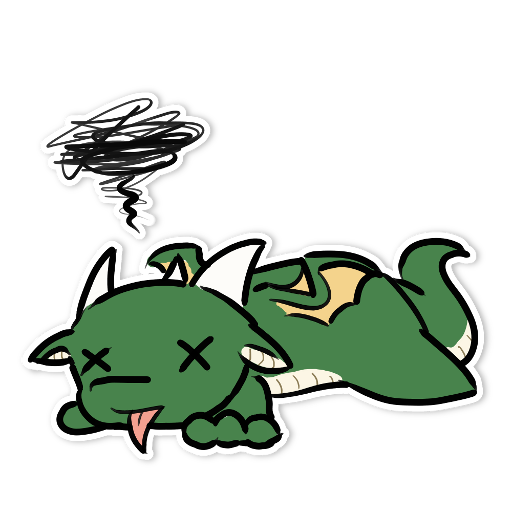
Google ended up getting tired of me trying to postpone the offer for longer. I accepted it, didn’t get a H1b, and ended up getting an offer in Google Switzerland.
At Google, the first team I worked on was doing some stuff which cared about metrics and was downstream of NLP, but there wasn’t really organizational alignment that AI mattered. There were some applications of AI in isolated places, but the problems my team was responsible for were much more shaped like software engineering - building pipelines, services, etc. - than research engineering.
I was sorta hoping to finish my master’s thesis, but of course, didn’t have time to do it. I kept paying my uni to extend my studies, but eventually the clock ran out. And so I did finish all the courses for a master’s, but never actually got it, because I didn’t get around to doing the thesis.
Within Google, my original hope was that I’d try to position myself into a team that would be AI or AI-adjacent, do researchy stuff, eventually position myself to work on AI safety. But it ended up very hard trying to switch myself from “software engineer working in team X doing software engineer things” into “research engineer in ML”. I didn’t have any proven experience saying “I can do ML” - all I had was “hey I did all this stuff in uni”. But whenever I tried to apply for an internal transfer, somehow it didn’t end up working out. I think there must have been very hard competition. And getting rejections was always an ow.
My self-confidence suffered and I started feeling like I’m “not smart enough” or “not good enough to do this”. I envied people I knew who were working with ML.
Eventually I ended up saving up a bunch of money, including being lucky with crypto. I though about it a bunch, and decided that I just felt dissatisfied with the work at Google. It wasn’t evolving me in the direction of working in AI. I was good at my work, but I wasn’t getting the skills I wanted to get.
FIRE mode
Since uni I was following the “financial independence / early retirement” (FIRE) philosophy. See places like /r/financialindependence for info on that. With the money I saved my simulations showed I had a maybe like 80% of being able to stay in Switzerland, on my level of spending, basically indefinitely.
So I started just chilling in Switzerland, basically trying out “what early retirement would be like”.
I played a lot of Civilization 6 and Civilization 5. I didn’t really feel better than when I was working - maybe even worse. When you’re at work, you automatically get a bit of socializing. When you’re not, it’s actually up to your own initiative to meet people, and that was sorta hard in Switzerland.
Chilling and learning ML
I never thought of FIRE as “I’d retire and then I just chill on the beach sipping piña coladas forever”. I wanted to find a mix of seeing friends, having fun, and doing stuff that I felt like it mattered.
When I did the EA stuff in Czech Republic (like organizing the first EAGxPrague), it felt like it mattered. Work on AI alignment would matter - if I could manage to do it. Failing that, I thought maybe I’d find work someplace where I liked the mission and product. I contributed to some open-source, like Anki and Athens Research.
I’ve decided to try to put some more effort re-learning all the stuff I learned about AI in uni, except this time I wanted to actually grok it, where you could wake me up at 2 AM 5 years from now and I’d still be able to explain to you how it works. I went over old materials and re-learned them, making Anki cards, and started refilling the holes where my knowledge was stuck before 2017-era progress in AI - like deep RL or Transformer language models.
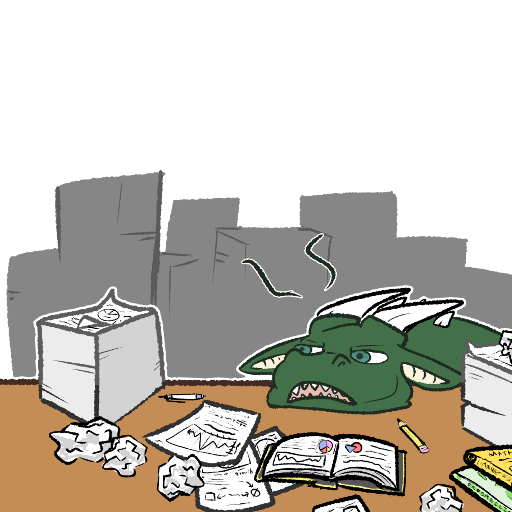
“Science was a mistake”? Maybe writing was? When reading paper X that assumes you’ve taken Advanced Xology and did all the background reading on Y, Z, α, β… sometimes it indeed do be like that.
To repeat the bullet points from the initial TL;DR, this was the procedure:
- Repeat a couple of times:
- Make a list of stuff that’s relevant to ML I don’t yet grok.
- Find resources to grok it. Some examples:
- I consumed all the TensorFlow tutorials that don’t go to too niche topics (though today I’d do PyTorch). And of course made tons of Anki cards. Contact me if you want some of them.
- Deep Learning specialization on Coursera
- DeepLearning.AI TensorFlow Developer Professional Certificate on Coursera
- Reinforcement Learning Specialization on Coursera (from Martha and Adam White of University of Alberta)
- For RL, I did a course on Coursera
- Learn all I can from those resources, collect stuff I don’t yet understand, find references (e.g., papers I wanna read sometime etc.).
- Read up on recent papers.
- Read Spinning Up in Deep RL and follow up on the references.
- Implement some basic RL and ML experiments - e.g., lunar lander, half-cheetah.
- Take part in AI Safety Camp.
- Go to Zurich AI alignment meetups.
- Take part in an AGI Safety Fundamentals course.
Nowadays, I’d actually recommend Jacob Hilton’s Deep Learning curriculum. It’s based on an OpenAI-internal curriculum for residents and it’s really good at building up a good background for work at OpenAI.
So, I’ve been slowly taking courses, sometimes experimenting, sometimes reading papers. Eventually I found the paper Proximal Policy Optimization Algorithms.
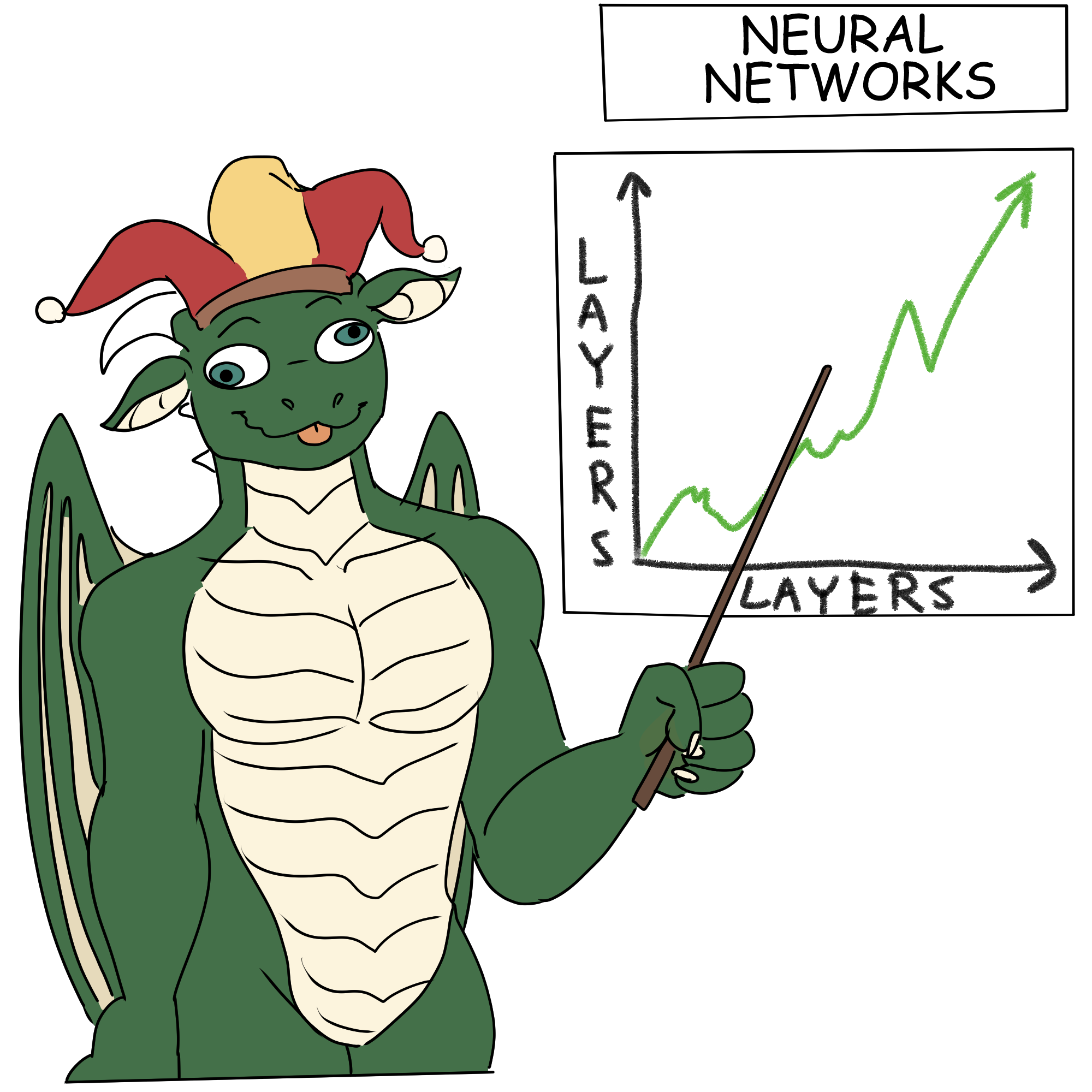
This is my life now.
I tried pretty hard to grok it, because it is sorta magic. One day I wanna write a blog post explaining it. There’s a whole bunch of math involved in proving that it actually works. But I’ve been trying to build really deep foundations, really grok all the stuff involved in doing ML. To the point that theoretically I’d be able to relay all of this to a Russian babushka, given enough time.
Reading that paper, I found a few small mistakes in exposition. The first author on that paper is John Schulman. I sent him an email.
In the background I’ve been on the lookout for some roles. I hoped eventually I’d be able to take some role where I’d build up a bit of ML experience, and then I’d be able to take that and leverage it into a role closer to AI safety.
Places I’ve been looking at included:
- OpenAI residency
- CHAI internship
- DeepMind
- Anthropic
- Redwood Research
- Machine Intelligence Research Institute
- Cohere
- Generally Intelligent
- Ought.
John responded to the email, and invited me to apply to the OpenAI residency.
OpenAI had 2 residency tracks: software engineer and research. Originally I was scared of applying for research, because of all the self-doubt and impostor syndrome I was (and still to a degree am) carrying from having failed to write a master’s thesis.
But John encouraged me to try the research track, maybe believing in myself more than I did - and I made it through. The research interview was the most nervous I felt interviewing ever - it was a multi-hour small sized research project involving tools like Jupyter, NumPy, etc.
And I made it. It was very useful to have all the commands for Pandas, NumPy, etc. memorized in Anki. But if I had to take the interview again, I’d recommend myself to spend more time playing around with various algorithms, grokking how they behave as you change parameters, etc.
I ended up getting accepted both for the OpenAI residency, and an internship at CHAI. Both of them would have been awesome to work on. Out of these two, I chose to go with the residency - mostly because I felt that because CHAI was an academic institution, it would have been harder to grow there post-internship if I wasn’t a PhD candidate.
Conclusions and recommendations
Here’s stuff I would have done differently and that I’d recommend to people in a similar position:
Be safe but take risks.
I think I should have been less afraid to leave Google and be without a source of income for a while. Theoretically I think I could have executed the “take a year off and do some studying” thing maybe without even going through Google. Though the Google experience definitely made me a much better engineer.
If you want to work on AI safety, I’d recommend doing something like this (“take a year off and learn AI”) when you have maybe like 18 months of runway. I had way more runway than that at the point when I did that.
Community is super important.
I’d recommend myself to try harder to find other people who do things like read AI papers, do experiments, etc. - like AI meetups, AI safety camp, that sort of thing.
Local optimizations are also important.
In Switzerland, I was for a while in a loop where I felt depressed that I wasn’t moving forward toward working in AI, and didn’t have the energy to do that.
I think one thing which helped a bunch was starting to actually learn German. Did I want to stay in Switzerland long-term? No, not necessarily. But it did make me feel way less like an alien. I didn’t immediately broadcast to everyone “I’m a tourist” whenever I wanted to have a coffee. And I felt like “hey - I’m achieving a thing!”
I’d generalize this to:
“Tactics mean doing what you can with what you have.”
– Civilization 6 flavor text for Military Tactics tech, originally Saul Alinsky.Do you really want to do thing [X] but it’s really hard and discouraging and depressing because all actions towards [X] are not in the range of stuff you can do now?
Maybe go and take a walk around the block. Wash the dishes. Will it solve [X]? No, but you’ll make things easier for future-you. Exercise is healthy for the mind and body. Having a nice orderly environment makes it so that when you wake up, your first thought isn’t “ugh, all this mess”.
Do what you can with what you have.
Don’t fall victim to impostor syndrome.
If anyone figures out how to solve this one in full generality, let me know :)
I think part of that can be just hanging around people who are nice and support you. For me, actively joining the furry community has been an important part of that. I haven’t read Vega’s Opinionated Guides yet (they’re on the to-read list), but I think the Community guide might have useful pointers. The furry community is great and so is the hacker community. For both of those, I’ve known for a long time that they exist and I wish I became actively involved way earlier.
I hope maybe this might give another nudge to people who’d like to work on alignment, or that some of this advice might be useful.